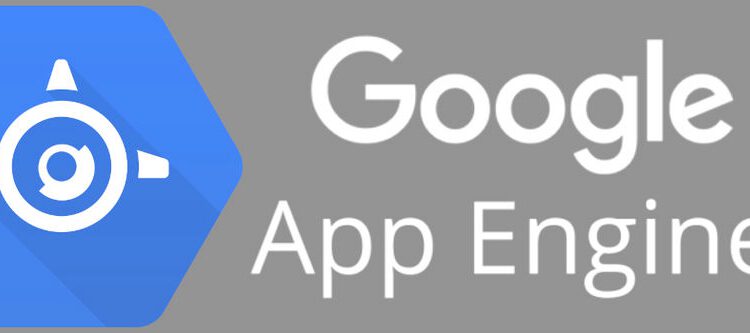How can companies work flexibly and scalably? The Google App Engine should serve as a solution for this. The PaaS, i.e. Platform as a Service, offers growing framework conditions for server-side rendered pages in various development languages.
As a platform as a service, the Google App Engine serves as a scalable system for hosting web and distributed applications.
Amazon has already demonstrated the great need for scalable solutions for modern companies with Amazon Web Services (AWS). In a globalized Industry 4.0, it is essential that companies can budget with their own resources, but at the same time are always available.
The Google App Engine works on a similar principle. As a Platform as a Service (PaaS), the service is available to the booking companies to the extent that is really needed. Web applications can be hosted via the Google App Engine without having to use your own servers.
Not only the serverless advantages of the cloud (on the user side) are connected here, but also the flexibility of different development languages. Because Google App Engine works in Node.js, Ruby, Java, C#, Python, Go or PHP. In which of these common programming languages a web application was developed, it does not matter – the application can be easily hosted via the Google App Engine.
The biggest advantage for developers is certainly the freedom to create an infrastructure. Instead, developers have the opportunity to focus on writing the code. For example, the Google App Engine can be understood as a CMS for web applications.
The biggest advantages of the Google App Engine at a glance
Usability
Server management and the costly provision of their own infrastructure are not only an unnecessary burden for many developer teams, but also pose financial hurdles for SMEs or start-ups in particular. In addition, PaaS is a proven model that enables flexibility at ongoing costs. The infrastructure, implementation and traffic management are already covered by Google App Engine, so that the specialists can concentrate fully on writing the web applications.
Flexible growth
Companies that rely on their own server infrastructure for their web applications often suffer from growth pains. Because with growing demands, your own servers also have to be adapted, which in turn entails an increase in personnel and technical infrastructure. A cloud service does not suffer from these disadvantages and offers full usability even if it has to be done quickly. High traffic at peak times or a viral success can be compensated in this way, but the resources are also reduced if there is less demand.
Safety and speed
Unlike self-managed hosting, the Google App Engine has enormous security potential thanks to Google’s technical capabilities. The Google App Engine protects web applications from attacks or malware automatically and always updated, without companies having to provide personnel for this. At the same time, Google App Engine has tools that can be used to reduce the test time and thus drastically accelerate launches and updates.
Versatility through APIs
Due to the use of various programming interfaces, the Google App Engine remains so versatile in practice that there is a suitable solution for almost every web application. Own cloud storage, Blobstore, Google Cloud Endpoint or SSL support are among the most frequently used APIs and once again improve usability for programmers.
A scalable, but not a one-size-fits-all solution
Despite all these advantages and a focus on ease of use and scalability, Google App Engine is of course not the perfect solution for every company. And before developers and IT departments decide on the App Engine, they should also be aware of the disadvantages.
For example, Google App Engine uses a variety of different development languages, but not all programming languages are supported. Programmers who are not in Node.js, Java, Ruby, C#, Go, Python or PHP simply cannot use the Google App Engine properly (even if a workaround is available with Custom Runtime).
The file system is also designed for Read Only, so users cannot write files locally. And this makes Google App Engine unusable for many scenarios in advance.
The costs can also exceed those of a self-hosted system, depending on the needs and requirements of a company.
Like other PaaS systems, Google App Engine also makes it difficult for users to migrate to other platforms. Installing a web application on another service is associated with a high amount of work, even in the best case.
Google App Engine as a Platform as a Service
If companies want to use web applications, they have various possibilities to implement this in such a way that their systems are also up to the growing requirements. Google App Engine is one such option that balances flexibility, growth and ease of use on the one hand with loyalty to the platform and rising costs on the other.
But Google App Engine also offers a free entry, where users can already use a large number of the resources of the app Engine for free. Only the use of additional resources has to be paid here. With the flexible and the standard environment, further possibilities are also available to adequately absorb various usage loads.
Google App Engine is a reliable and secure system for hosting web applications. Whether Google’s PaaS is really the right solution for your own use case should be weighed from scenario to scenario.








